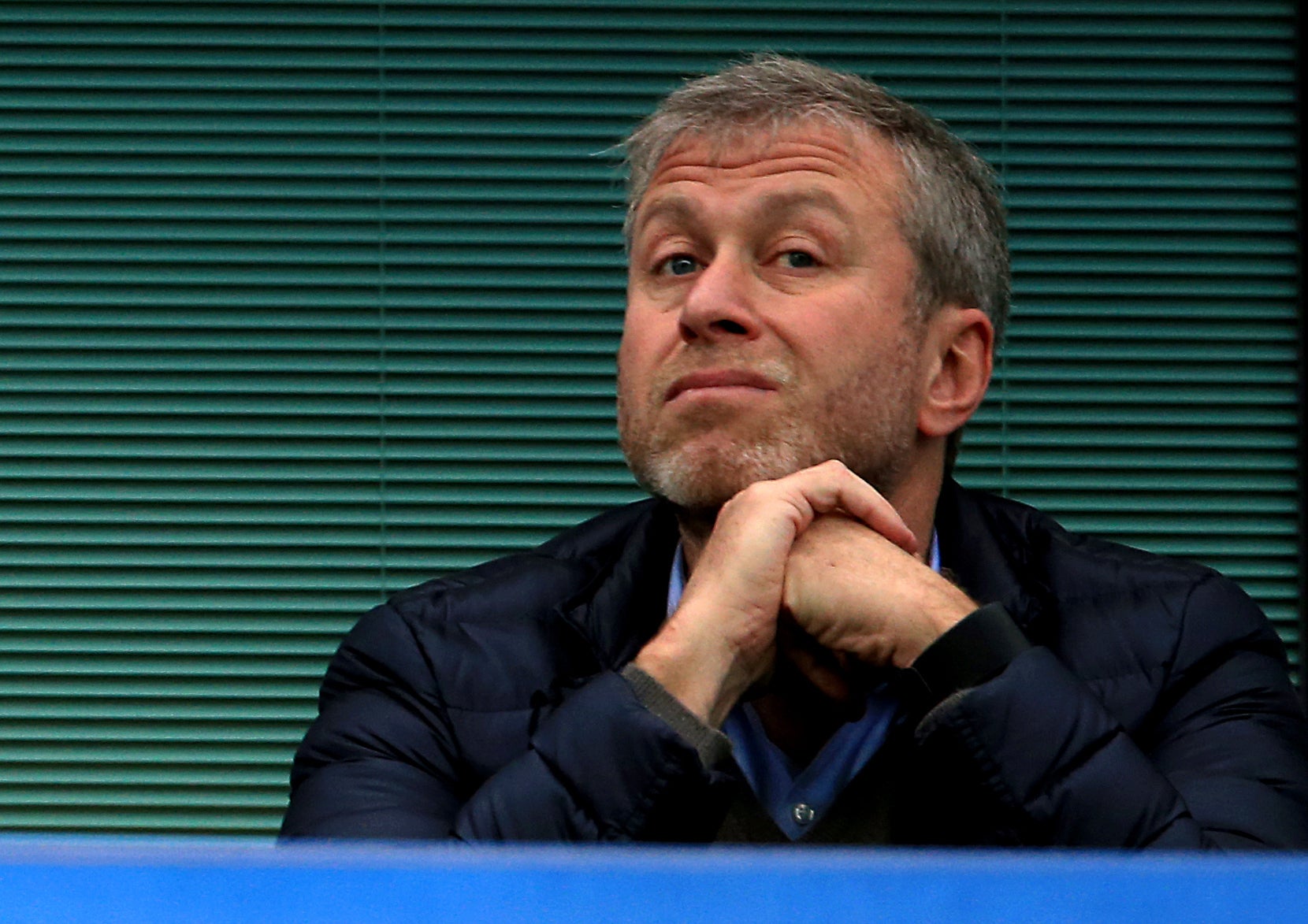Abramovich poisoning claim ‘worrying’, says government minister
Warning to negotiators not to eat or drink anything during Istanbul talks

Allegations that billionaire Roman Abramovich and Ukrainian negotiators were poisoned during peace talks with Russia represent a “worrying development”, a UK government minister has said.
Education minister Will Quince said that the UK would be “looking to establish the facts” around the claim, though he stressed that a formal investigation was for Ukrainian authorities.
Ukraine’s foreign minister Dmytro Kuleba has advised anyone taking part in negotiations with Russia resuming today in Istanbul over an end to the month-old invasion not to eat or drink anything during the process.
Mr Quince said: “As much as there is scepticism globally about whether these peace talks will be successful, I desperately hope that they are.”
Abramovich and at least two senior members of the Ukrainian delegation developed symptoms that included red eyes and peeling skin on their faces and hands, sources familiar with the matter told The Wall Street Journal and investigative news outlet Bellingcat.
The Independent understands that the Chelsea FC owner suffered temporary blindness for several hours following the poisoning, but quickly recovered.
Mr Abramovich accepted a request by Ukraine at the end of February to help negotiate an end to Vladimir Putin’s invasion just days after it started, and is said to still be interested in mediating despite the incident.
A spokesperson for the Foreign Office said: “The allegations are very concerning.
“The UK will continue to assist by implementing tough sanctions on Putin’s regime, and by providing defensive and humanitarian support to help put Ukraine in the strongest possible negotiating position.”
The lead Russia investigator at Bellingcat, Christo Grozev said the "most plausible" explanation of the alleged poisoning was that it was meant as a "warning sign" to other oligarchs not to deviate from Vladimir Putin’s line.
“That is, by far the most plausible scenario,” Mr Grozev told Times Radio.
“Clearly, the dosage was not high enough to kill any of the three. The most likely target would have been Abramovich.
“And it kind of makes sense. I mean, he volunteered to play this role of a honest broker, but other oligarchs had previously or at the same time declared certain independence from the Kremlin position and criticised the war.
“So it could well be seen as a warning sign to them to not join the ranks of those who dissent and to not be too much of an honest broker.”
An adviser to Ukraine’s president Volodymyr Zelensky has confirmed that Mr Abramovich was involved in talks with Russia.
Cambridge University professor Alexander Rodnyansky told Times Radio: “He has been playing a role, he’s certainly been talking to the Russian leader. And that’s where the value is potentially.
“Just before the war broke out, the Russian negotiator Kozak - who was responsible for talking to Ukraine and for managing the whole talks that were ongoing back then - basically was clueless about the invasion right to the end. He didn’t really know what was coming.
“And so when that happened, it was obvious to us that we need to look for other routes, for other possible methods to reach the Russian leader. And so one of those possible solutions could have been an oligarch.
“Roman Abramovich basically volunteered, so we have to give peace a chance. So that’s what we’ve been doing. I’m not sure how much it can yield, I’m still pessimistic when it comes to the whole idea of these peace talks for the obvious reasons.”
Join our commenting forum
Join thought-provoking conversations, follow other Independent readers and see their replies
Comments
Bookmark popover
Removed from bookmarks